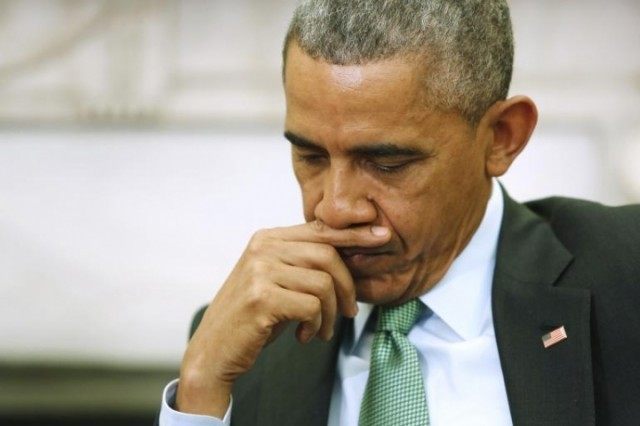The other day a friend who works for a tiny arts charity employing two people in an office the size of a shoebox applied for a grant from the Arts Council, the taxpayer funded quango whose job it is to fund Britain’s theatres, galleries, museums etc.
After filling out reams of questionnaire, my friend discovered that the Arts Council was far less interested in his charity’s artistic merits than it was in its environmental policy.
“Well we don’t really have one, there’s only two of us and what we’re mainly about is, er, promoting literature,” explained my friend.
“Yes but what are your sustainability Key Performance Indicators?” asked the Arts Council’s Environment Officer. “We can’t give you funding till you’ve sorted out your environmental KPIs.”
So together they agreed on an environmental KPI strategy. In future, this two-man-in-a-shoebox operation promised that from now on, it would use Fairtrade coffee rather than normal, drinkable stuff.
I wish this story were a joke, but as you’ll see from the Arts Council’s website, “sustainability” is now integral to this quango’s mission purpose.
Environmental sustainability is an issue of global significance. The Arts Council want the arts and cultural sector in this country to take a lead in making the world a more sustainable, responsible and equitable place and to transform itself into a low-carbon, sustainable and resilient sector. The consequences of climate change require us all to take care in our use of resources, and to ensure that we do not pursue short-term gain at the expense of future generations.
What, in other words, we can safely infer is that a portion of this supposedly non-partisan organisation’s taxpayer-funded budget is now being squandered on staff salaries and bureaucracy which have nothing whatsoever to do with its ostensible purpose as the guardian of Britain’s artistic heritage. It goes instead on pure, unadulterated, 100 per cent renewable, sustainable and Fairtrade, organically-sourced, copper-bottomed eco bollocks.
For the Arts Council, see also any number of other charities, NGOs, quangos, universities, government departments and supranational governance institutions from the National Trust and the Royal Society for the Protection of Birds all the way up to the World Bank.
Every one of them has been hijacked by environmental entryists and been diverted, at least in part, from their notional stated objectives into becoming yet another branch of the Green Mafia.
It’s a global scandal – and it remains largely an undocumented one because the green cuckoos have largely taken over the nests of local and international governance by stealth.
And while the problem is bad enough in Britain, Europe and Australasia, there is nowhere in the world where it is more damagingly entrenched than it is in the US under the Obama administration, which is so in thrall to the environmental zealotry of high-level figures like John Podesta (Hillary Clinton’s campaign manager), Secretary of State John Kerry, its amen corner at the Environmental Protection Agency, billionaire funder Tom Steyer that it might just as well rename itself Greenpeace International.
If you don’t find this worrying, you should. Very. As I detailed in my book Watermelons: How Environmentalists Are Killing The Planet, Destroying The Economy And Stealing Your Children’s Future, the ultimate aim of the green movement is a New World Order involving global governance by experts and technocrats over whom none of us has any democratic control.
It may sound like a conspiracy but if it is one it’s a conspiracy in plain sight: the phrases “New World Order” and “global governance” can be found everywhere from environmental bestsellers by the green lobby group The Club Of Rome to United Nations’ policy documents.
Up until now, this green takeover has seemed unstoppable. But this week’s news has offered a glimmer of hope – and also a useful reminder of the one thing in the world which may yet be more powerful than the tidal wave of green bullshit which for over four decades has been threatening to overwhelm us: economic self-interest.
By “economic self-interest” I don’t mean so much that “greed is good” – though, it basically is: I’m with Adam Smith and Gordon Gekko on that one – as the perfectly healthy and natural desire of the human species across the world to improve its lot and live a better, happier, more comfortable life than its ancestors.
This powerful urge is what we’re seeing now in the decision of several of the world’s leading economies (from Britain, France and Germany to Brazil and Australia) – but definitely not the US – to lend their support to China’s new Asia Infrastructure Investment Bank. (H/T Global Warming Policy Forum)
Even the doctrinaire green New York Times recognises what the real story is here:
Of far greater consequence is the way the West’s environmental agenda undermines the very goals it professes to achieve and threatens to advance devastating climate change rather than retard it.
In a nutshell, when developing Asian economies want to apply for funding for major infrastracture projects what they really don’t need to hear is some finger-wagging Westerner from the IMF telling they can’t have it because it clashes with the institution’s “sustainability” objectives and will involve too much “carbon”
They don’t want wind farms or solar panels. They want stuff that actually works, all the time, on a significant scale.
According to the LA Times:
U.S. officials have voiced concerns about whether the new institution will abide by rigorous international standards on banking, labor and the environment.
Of course they have. This is a major humiliation for the Obama administration. And an even bigger one for Big Green.

COMMENTS
Please let us know if you're having issues with commenting.